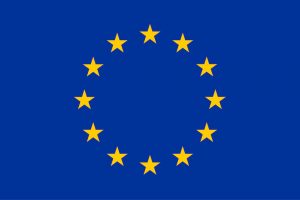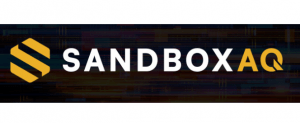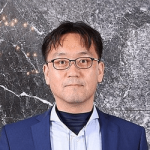Quantum News Briefs October 21: Luxembourg to Host EuroHPC-Supported MeluXina-Q Quantum • Why Balancing Europe’s AI Regulations Is a Difficult Juggling Act for Start-Ups • Eric Schmidt’s SandboxAQ Aims for $5B Valuation • Dutch Unveil a Measure That Curbs Exports of Quantum Technology

Luxembourg to Host EuroHPC-Supported MeluXina-Q Quantum Computer
 Luxembourg’s Minister of Economy, SMEs, Energy and Tourism, Lex Delles, and Minister of Research and Higher Education and Digitalisation, Stéphanie Obertin, introduced on October 21 the “MeluXina-Q” project, a quantum computer to be installed and operated in Luxembourg. The announcement was made in the presence of Arnaud Lambert, CEO of LuxProvide, Gustav Kalbe, Acting Director of DG Connect, and Anders Dam Jensen, Executive Director of EuroHPC Joint Undertaking.
Luxembourg’s Minister of Economy, SMEs, Energy and Tourism, Lex Delles, and Minister of Research and Higher Education and Digitalisation, Stéphanie Obertin, introduced on October 21 the “MeluXina-Q” project, a quantum computer to be installed and operated in Luxembourg. The announcement was made in the presence of Arnaud Lambert, CEO of LuxProvide, Gustav Kalbe, Acting Director of DG Connect, and Anders Dam Jensen, Executive Director of EuroHPC Joint Undertaking.
MeluXina-Q, which will be hosted and managed by LuxProvide, the national competence center responsible for the Luxembourg supercomputer MeluXina, represents a significant step in strengthening Luxembourg’s position in advanced digital technologies. With the launch of this cutting-edge system, Luxembourg reaffirms its commitment to collaborating with European partners. MeluXina-Q is the seventh quantum computer co-funded by EuroHPC in Europe.
The system will initially feature a 10-qubit quantum processing unit (QPU) based on innovative silicon technology, ensuring a secure and scalable supply chain within the European Union.
MeluXina-Q will be a versatile, general-purpose system, fully integrated with the MeluXina supercomputer, and will enhance its capabilities across a wide range of applications, from scientific research to addressing industrial and societal challenges. The system will be used to explore, develop, and test new algorithms aimed at accelerating the resolution of complex problems in fields such as chemistry,
In Other News: EuroNews Reports “Why Balancing Europe’s AI Regulations Is a Difficult Juggling Act for Start-Ups”
 In a wide-ranging interview,
In a wide-ranging interview,
In Other News: TechCrunch Reports “Eric Schmidt’s SandboxAQ Aims for $5B Valuation“
 SandboxAQ is reportedly seeking to raise another round that would value it at $5 billion, TechCrunch has reported citing an October 18 in Bloomberg. Its last $500 million round, completed in February 2023, had backers like Breyer Capital, T. Rowe Price funds, and Marc Benioff, Reuters reported at the time. PitchBook estimated its valuation after that round to be $4 billion.
SandboxAQ is reportedly seeking to raise another round that would value it at $5 billion, TechCrunch has reported citing an October 18 in Bloomberg. Its last $500 million round, completed in February 2023, had backers like Breyer Capital, T. Rowe Price funds, and Marc Benioff, Reuters reported at the time. PitchBook estimated its valuation after that round to be $4 billion.
But it is not building a quantum computer, although its software products should one day work with them, Hidary said recently. Instead, it’s building software based on quantum physics that can model molecules and make predictions of their behavior. Google is still working on the quantum computer part, but Hidary says SandboxAQ already has a number of quantum computing partnerships.
It is not working with AI of the generative AI ChatGPT chatbot variety. Instead of predicting language, it is using large modeling AI techniques on equations. Or as Hidary explained, “Instead of the world of large language models, we’ve now entered the world of large quantitative models, LQMs. And LQMs are about starting with equations to generate data.
Throughout the year, a number of investors have set up special purpose vehicles (SPVs) for the company’s shares. As we previously reported, such SPVs have become a hot financial tool because so many investors are eager to get a piece of big-name AI startups.
In Other News: Bloomberg Law Reports “Dutch Unveil a Measure That Curbs Exports of Quantum Technology”
 The Dutch government announced that companies will need an export permit if they want to sell quantum computers outside the European Union according to October 18 Bloomberg article by Patrick Van Oosterom in Bloombert Law.
The Dutch government announced that companies will need an export permit if they want to sell quantum computers outside the European Union according to October 18 Bloomberg article by Patrick Van Oosterom in Bloombert Law.
The regulation, which takes effect Dec. 1, applies to eight types of quantum computers, quantum measurement equipment and chipmaking technology, among other products.
The US has been pushing the Netherlands to limit exports of chipmaking equipment to China, targeting the sales of advanced machines of ASML Holding NV to the Asian nation.
“The cabinet primarily took this step out of national security reasons,” Dutch Minister for Foreign Trade and Development Aid Reinette Klever wrote in a letter to the Dutch parliament.



















